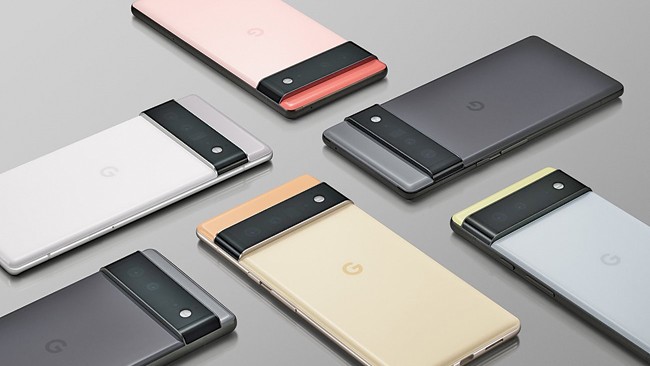Google will finally have better control over the lifespan of its Pixel phones and what they can do. The news is the next Google phones — Pixel 6 and Pixel 6 Pro — will be powered by the company’s own system on a chip, called Tensor. The move comes at a time when Apple has broken away from Intel by making its own M1 chip while Google is ditching Qualcomm (a symbolic loss for the company) in favour of Tensor. Why does Tensor matter and what do we know about the next Google phones? Let’s dive in.
Tensor, the story
Tensor is also the brand name that Google uses for some of its AI hardware. So, it’s necessary to take a step back to understand where it is coming from. With machine learning taking off in the last few years, there has been an increased demand for specialised computing resources for training and predictions, something that led to the development of Tensor Processing Units or TPUs. Modern computing makes huge demands on processing power but that also means we are testing the very limits of physics. The need for specific computational power is what led to the first TPU, which was built as a PCI Express expansion card and it was plugged straight into existing server racks at Google data centres.
What we now have is a mobile version that is going into the two new Pixel phones, set to arrive in fall. With the Tensor system on chip or SoC, Google is saying that it’s going to do a flagship-level job on all of that core CPU working, and also that the TPU part of it is going to be essential to the entire pipeline. Think of what Apple has done by adding the Neural Engine to its A-series chips.
Implementation and implication
There are many ways Tensor chips can help Pixel phones, which is known for doing some heavy computational photography but that’s about it. Pixel phones are great but so far it has had a limited user base. This is expected to change for the better.
With the implementation of Tensor SoC, there will be fewer blurry photos. The phone will still take a bunch of shots when you point it at anything or anyone but also use the ultra-wide sensor to catch a super-fast shot which will be used to minimise blur. Videos have been historically poor on Pixel phones but with TPU in the pipeline, algorithms that are used on photos can also be thrown at videos, offering better white balance, better HDR range and so on. Besides, Google has finally found a reason to opt for a new set of sensors, information of which will arrive only in fall but expect cameras to take in more light… way more than it did on the Pixel 5.
A lot of things will work better on the Pixel. For example, the phone already does on-device real-time captioning in videos, now it will be even better. Dictation too will be more accurate.
More importantly…
You will finally be able to hold on to a Pixel phone much longer because Google knows what it wants from the phone and now has the power to design the chip accordingly. Android phones now offer software updates as long as Qualcomm also officially supports these updates. With the chip under Google’s control, the company can make a phone last longer. See what has happened to the iPhone. People are holding on to iPhones for years but they are also using the services Apple has to offer, like Apple TV+ or Apple Music. Who knows, Google may also scale up or down the Tensor to fit into its other gadgets, like the Chromebook or home speakers. Like Apple, Google can now work at its pace to deliver devices and doesn’t need to depend on Qualcomm’s timeline.
Work has been on the custom Google Tensor chip for four years now, Sundar Pichai, Alphabet’s CEO, has tweeted, and Tensor builds off “of our two decades of computing experience” and it’s our biggest innovation in Pixel to date. If Pixel phones truly deliver what it’s promising, it could also be a sign that you may want to hold off buying your next flagship phone for the time being. In case you are not in a hurry, wait for a couple of months to see what Pixel 6 and 6 Pro can do.










